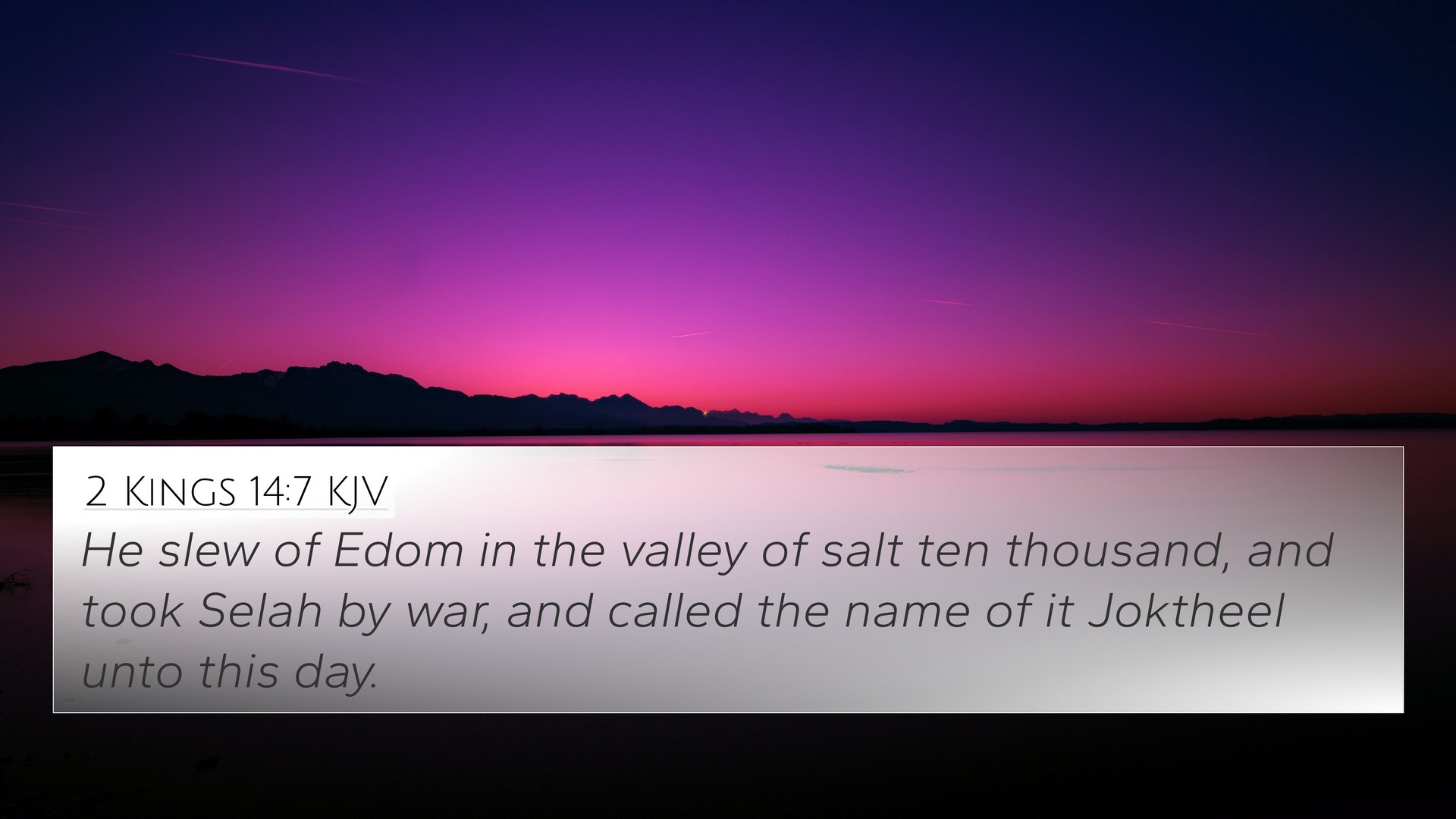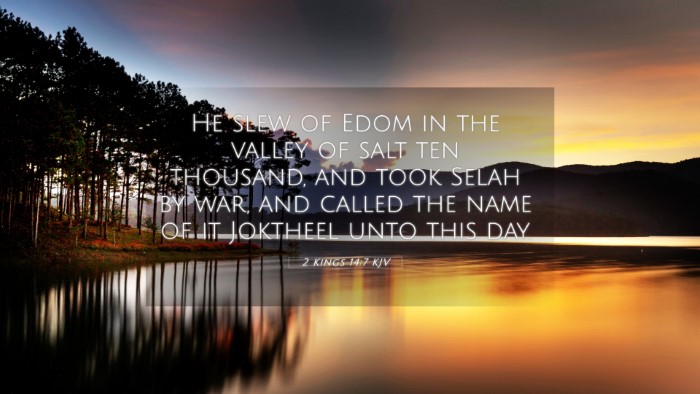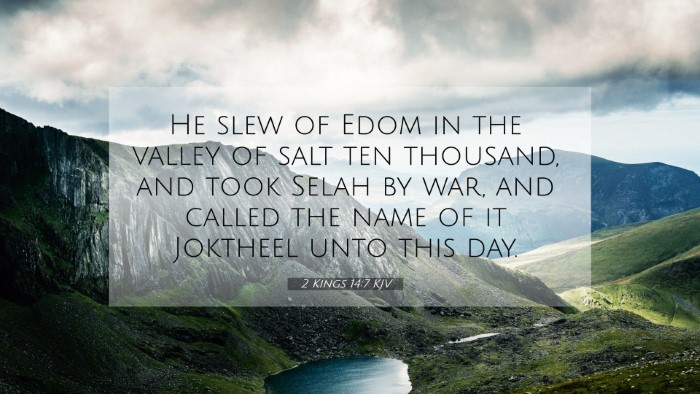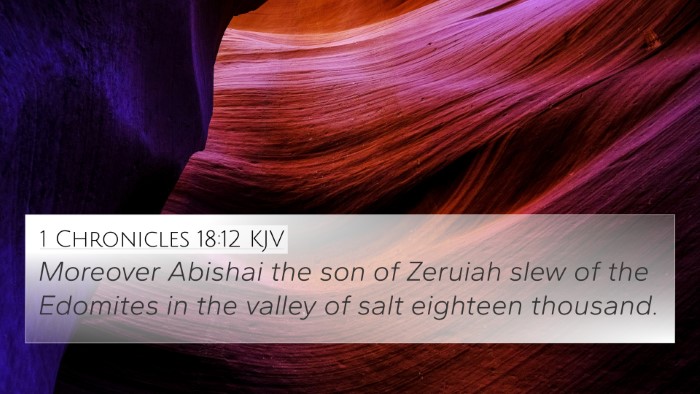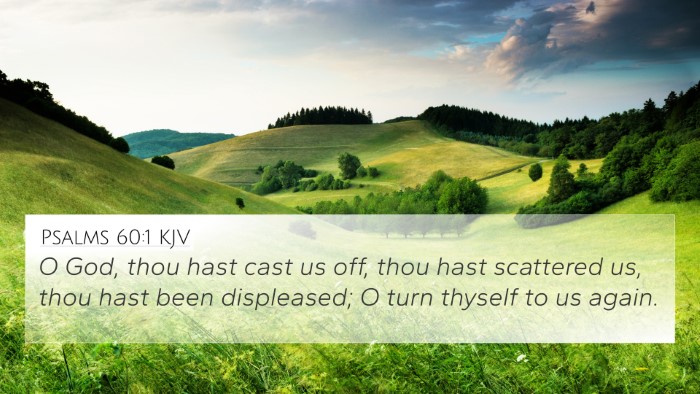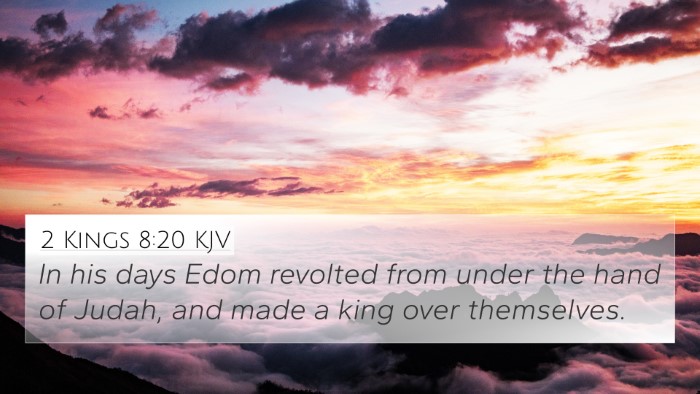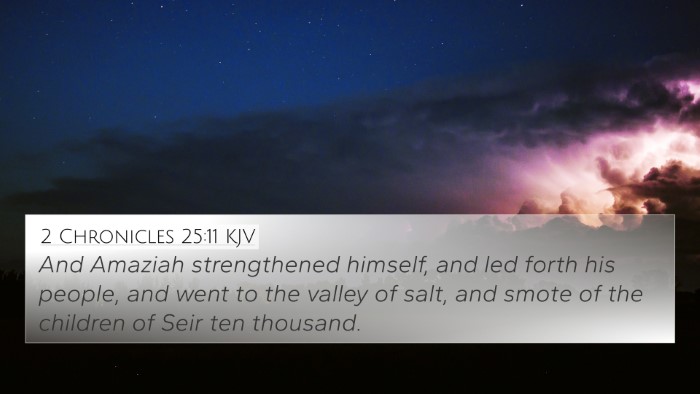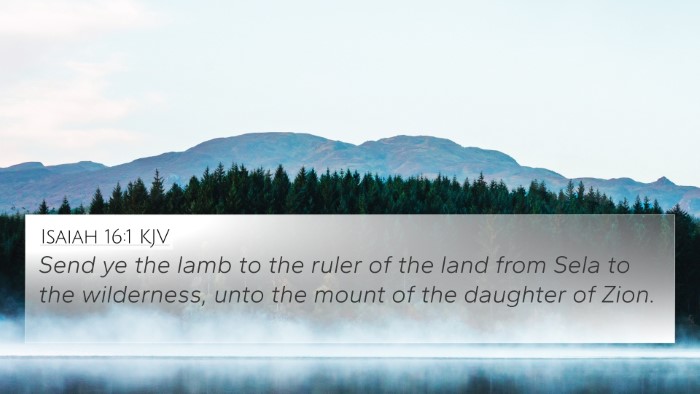Understanding 2 Kings 14:7
Verse: "He killed of Edom in the valley of salt ten thousand, and took Selah by war, and called the name of it Joktheel unto this day." (2 Kings 14:7)
Summary of the Verse Meaning
The verse 2 Kings 14:7 illustrates a significant military achievement of Amaziah, the King of Judah. It highlights his victory over the Edomites, demonstrating both his strength as a warrior and the divine favor that may have accompanied his reign.
Commentary Insights
-
Matthew Henry's Commentary
Matthew Henry emphasizes the accomplishment of Amaziah, noting that his successful campaign against Edom is an indication of the Lord's blessing upon him. The mention of Selah (known as Petra) signifies not just a geographical conquest but a spiritual victory over the enemies of Israel.
-
Albert Barnes' Notes
Albert Barnes highlights the historic background of the conflict with Edom, pointing to the longstanding enmity between the nations. He asserts that this victory reinforces the idea that God often grants victory to His people when they align with His will and commandments.
-
Adam Clarke's Commentary
According to Adam Clarke, the phrase 'called the name of it Joktheel' suggests Amaziah's desire to honor his victory and perhaps to dedicate the city to the God of Israel. This act reflects the practice of naming places after divine encounters, which serves as a reminder of His provision and protection in battle.
Cross References and Thematic Connections
The following Biblical verses connect with 2 Kings 14:7, showing the thematic continuity within scriptures regarding warfare, divine favor, and kingship:
- 2 Chronicles 25:11-12: This passage recounts the same event of Amaziah defeating Edom and reinforces the narrative of his military leadership.
- 1 Chronicles 18:12: Details the military prowess of David, linking the victories of only the ancients with the continued conquests in later times.
- Psalms 60:1-12: A recognition of God's victory in battles reflecting a relationship between divine assistance in warfare.
- Isaiah 63:1-6: A portrayal of God as a warrior who avenges His people, showing divine victory in combat.
- Amos 2:1-3: Prophetic insight into Israel's conflicts and judgment upon nations like Edom, linking them to divine sovereignty.
- Romans 8:31: "If God be for us, who can be against us?" This New Testament perspective underscores the concepts of victory attributed to God's support.
- Hebrews 11:32-34: Mentions heroes of faith who conquered kingdoms, emphasizing the ongoing theme of divine enablement in battles.
Inter-Biblical Dialogue and Themes
Examining 2 Kings 14:7 within the broader context of the Old and New Testaments reveals several thematic elements:
- Divine Favor in Leadership: Throughout scripture, God bestows success upon leaders who follow Him, seen in both Kings and the writings of the prophets.
- Symbolism of Names: The act of naming places post-conquest symbolizes a deeper acknowledgment of divine providence, a practice evident in many Biblical accounts.
- Military Encounters as Spiritual Lessons: The success of kings in battle often serves as spiritual lessons for the Israelites, highlighting the importance of obedience to God's commands.
Conclusion
In summary, 2 Kings 14:7 serves as a profound example of God's providence and support for those who lead according to His will. It connects to a web of scriptural references, illustrating the glory of God in the victories of His people. To fully appreciate the connections between Bible verses in this context, utilizing tools for Bible cross-referencing and understanding the theoretical framework of scripture will enrich one's study of the Word.
